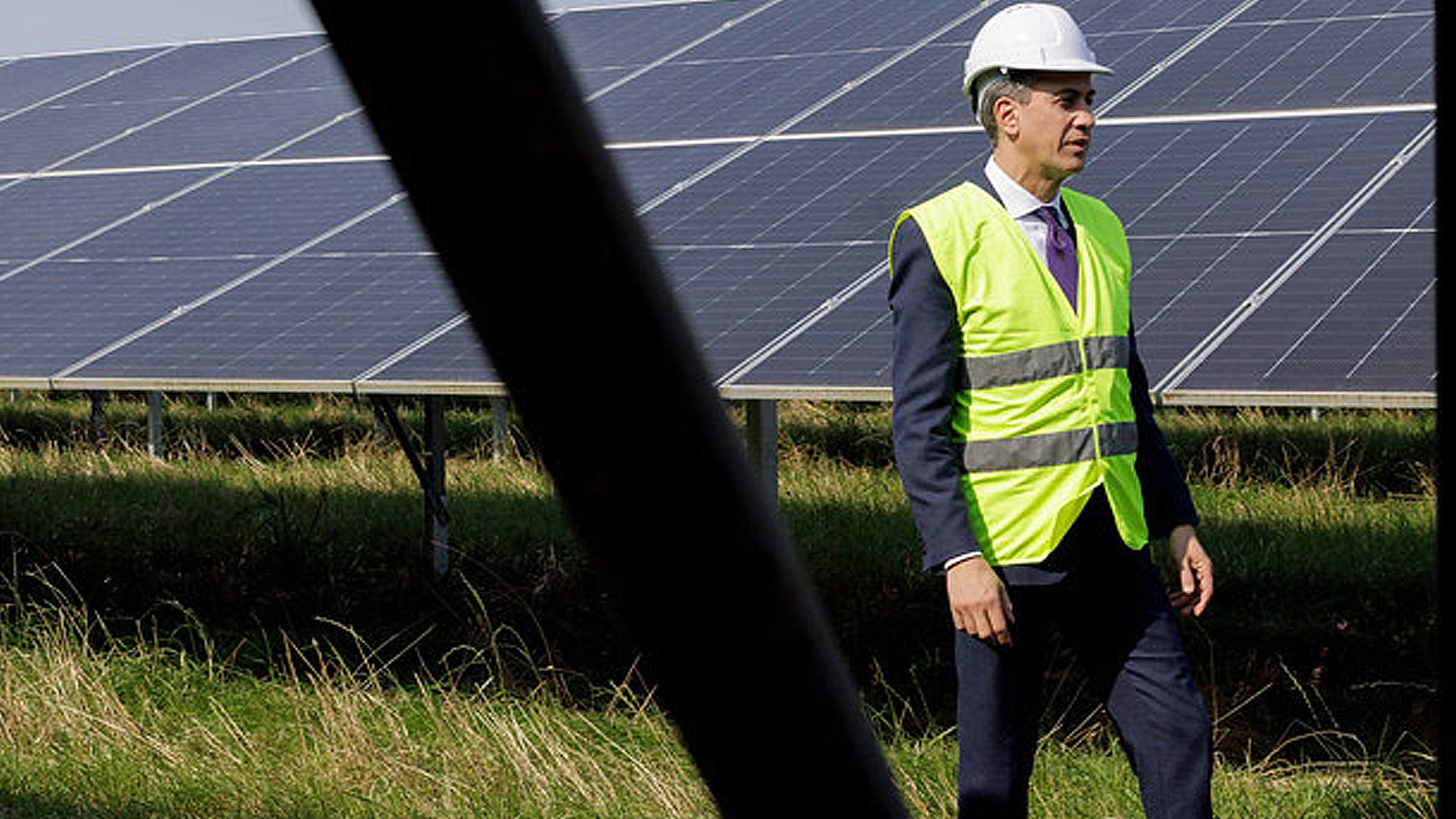
The government will require solar panels on nearly all new homes in England, under plans unveiled by Energy Secretary Ed Miliband on June 6, despite warnings from developers that the move could increase costs and delay house building.
The policy, part of the forthcoming Future Homes Standard, due this autumn, will compel developers to fit solar panels on the “vast majority” of new homes. Exemptions will apply only in limited cases, such as homes built in shade.
Miliband described the decision as “just common sense”, claiming households could save around £530 a year on energy bills. However, no detailed analysis has been published to support the figure or account for factors such as roof orientation, regional sunlight or future price changes.
The move marks a sharp break from the previous Conservative government’s softer policy, which encouraged solar covering 40% of a home’s footprint but allowed developers to opt out. Under Labour’s plans, developers who can’t meet the 40% target must still install a “reasonable” amount of solar—though what counts as reasonable remains undefined.
Industry Pushback
While around 40% of new homes already have solar panels, housebuilders warn the mandate could impose significant new burdens. Neil Jefferson of the Home Builders Federation said requiring individual applications for exemptions could create “burdensome paperwork” and slow progress on Labour’s pledge to build 1.5 million homes by 2029.
Developers are also concerned about costs. Though Miliband insists house prices won’t be affected, no economic modelling has been provided. Experts warn smaller builders may struggle to absorb the added expense.
Chris Hewett, chief executive of Solar Energy UK, estimated around 90% of new homes would fall under the new rules. He said enforcement should be straightforward but warned that local authorities—already facing planning backlogs and tight budgets—must be “vigilant” to ensure compliance.
Heat Pumps to Replace Gas Boilers
The new standards will also ban gas boilers in new homes, instead requiring low-carbon heating systems like heat pumps. Though a wider gas boiler ban has been shelved, this shift marks a major change in how homes are heated.
Recent planning rule changes have eased installation restrictions, and the government’s Boiler Upgrade Scheme—offering up to £7,500 per home—has seen applications jump 73% in early 2025.
Political and Market Reactions
The solar mandate comes amid growing political division over net-zero targets. Labour remains committed to the 2050 goal, but Conservative leader Kemi Badenoch has called it “impossible” without harming living standards. Reform UK wants the target dropped altogether.
Liberal Democrat MP Max Wilkinson has claimed credit for the solar policy, citing his campaign for mandatory panels on new homes.
Major developers like Vistry Group say they are already adjusting, having installed panels on nearly 10,000 homes in the past year. But smaller firms may struggle with costs and capacity. “We are certainly aware that we need to train more people,” said Hewett.
Climate Stakes
With residential properties responsible for around 20% of the UK’s greenhouse gas emissions, the housing sector is central to meeting net-zero goals. The Climate Change Committee has warned that decarbonising homes is essential.
Solar output has surged in 2025, with generation between January and May up 42% on the same period last year. But solar still lags behind gas, wind, nuclear and biomass in the UK’s energy mix.
Outstanding Questions
The government says the Future Homes Standard will include a transition period, but key questions remain:
What defines “reasonable” solar coverage for non-compliant roofs?
How will exemption criteria be set and assessed?
Can under-resourced local authorities enforce the rules?
What about developments already in the planning system?
Industry bodies are urging clarity well ahead of implementation to avoid disruption.
Green Credibility Test
If successful, the solar mandate could embed renewables into the fabric of British housing. But without clear guidance, proper funding and robust enforcement, it risks stalling construction and exacerbating the housing crisis. As autumn approaches, the government faces a defining test: turning climate ambition into workable, affordable regulation.
Photo: Secretary of State for Energy Security and Net Zero, Ed Miliband, tours Tiln Farm Solar Park in Retford on September 6, 2024. (Credit: Lauren Hurley/DESNZ)
Elham Asaad Buaras